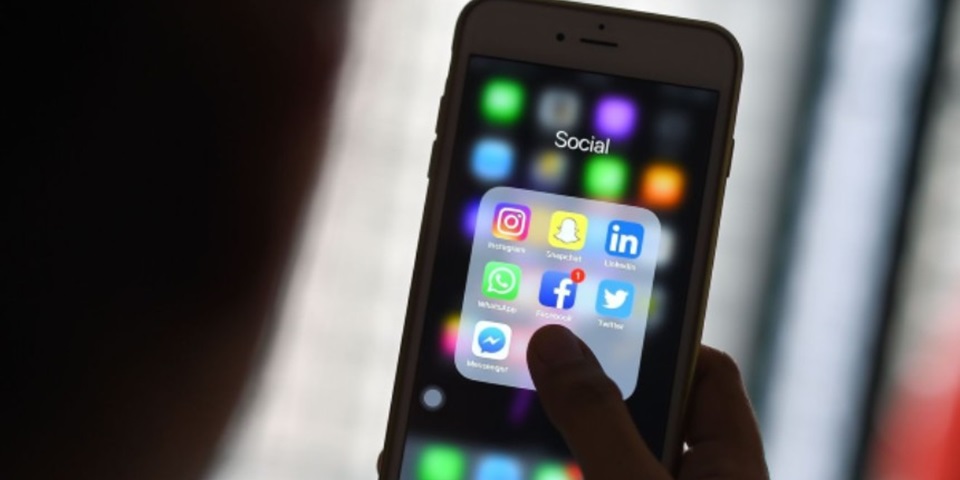News
Wartime social media, safety and sense in times of crisis

Social media is playing a significant role in the Russia-Ukraine war, from leaders tweeting calls for help, to innocent bystanders capturing horrific acts of violence on video.
There is an unprecedented flow of information from all sides, but where previously Facebook and Twitter were seemingly safe places to communicate for those caught up in such conflict, in 2022 engaging on social media during wartime requires a new level of caution.
Within an hour of the military action, Twitter Safety had shared tips for securing accounts in English, Russian and Ukrainian.
We’ve launched Search and Home Timeline prompts that point to a Twitter Moment with digital safety and security resources in English, Ukrainian, and Russian.
— Twitter Safety (@TwitterSafety) February 25, 2022
https://t.co/rwLZ7WHJfk"
Ans Facebook set up a Special Operations Centre staffed by experts, including native Russian and Ukrainian speakers, to monitor the platform around the clock.
“We’ve added several safety features in Ukraine and Russia, including the ability for people to lock their Facebook profile, removing the ability to view and search friends lists, and additional tools on Messenger,” Facebook’s parent company, Meta, said.
Another Meta platform, Instagram, has introduced encrypted one-to-one chats for people in Ukraine and Russia, while on WhatsApp, personal messages and calls are already protected with end-to-end encryption but a new ‘view once’ control has been introduced that allows people to send photos or video that vanish after being seen and ‘disappearing mode’ to automatically erase all new chats after 24 hours to protect information.
Murdoch University Senior Lecturer in Strategic Communication and social media researcher Dr Catherine Archer said the response from social media companies was new territory.
It shows that governments monitoring social media and using it to find people is a very real threat."Dr Catherine Archer FPRIA
“It’s not exactly news that people are using social media to protest or let others know they are safe, but how nations or regimes are using it to surveil and spread propaganda is very interesting.”
With so much information online, the social media giants appear to be putting a lot of effort into stopping, or at least slowing, the spread of misinformation.
“On YouTube, we’re prominently surfacing videos from trusted news sources and working hard to remove content that violates our policies,” Google Europe tweeted, adding that in just a few days it had removed hundreds of channels and thousands of unreliable videos.
Trustworthy information is especially important in a time of crisis. Our systems are built to identify these types of moments and weigh signals of authoritativeness more heavily so people can find the most reliable, timely information available."
— Google Europe (@googleeurope) February 25, 2022
CNN reporter Daniel Dale said old war clips are being shared on social media and being captioned as new, and a fake TikTok from Ukraine garnered more than 5 million views in 12 hours.
It features a couple repeating “oh my god, oh my god” followed by a loud explosion, screaming and “ow, my leg”. The audio comes from a 2020 explosion in Beirut.
There have even been reports of TikTokkers pretending to livestream from Ukraine using doctored footage to solicit financial donations.
On the battlefield people refer to the fog of war, but it’s becoming a pea-souper on social media.
If you would like to contribute to humanitarian aid for Ukraine, the Red Cross and Save The Children are taking donations.
To help a local effort, our colleagues in Occupational Therapy at Curtin University have worked with Ukraine Crisis Appeal for several years. The appeal is a collaboration between the Australian Federation of Ukrainian Organisations, Rotary Australia World Community Service, and Caritas Ukraine, and is one of the largest Australian tax-deductible fundraising efforts for Ukraine.
If at first you can’t make contact, stay calm, be patient and keep trying. Services may be affected.
If you can’t make contact and are still concerned, contact the Consular Emergency Centre on 1300 555 135, (or if you are overseas on +61 2 6261 3305).
Australian citizens, permanent residents and their immediate family members in Ukraine are asked to register on the online crisis portal.
For up-to-date travel advice on Ukraine and border regions, visit the Smart Traveller.
News
Wartime social media, safety and sense in times of crisis
Posted on